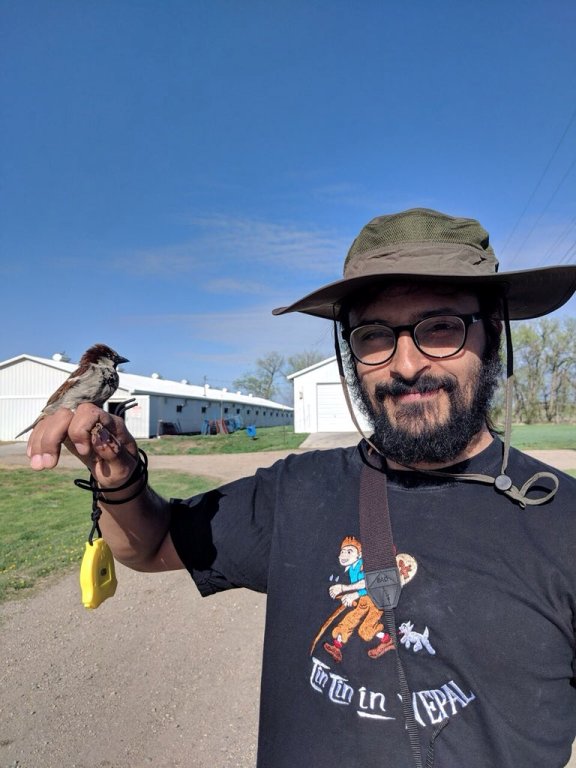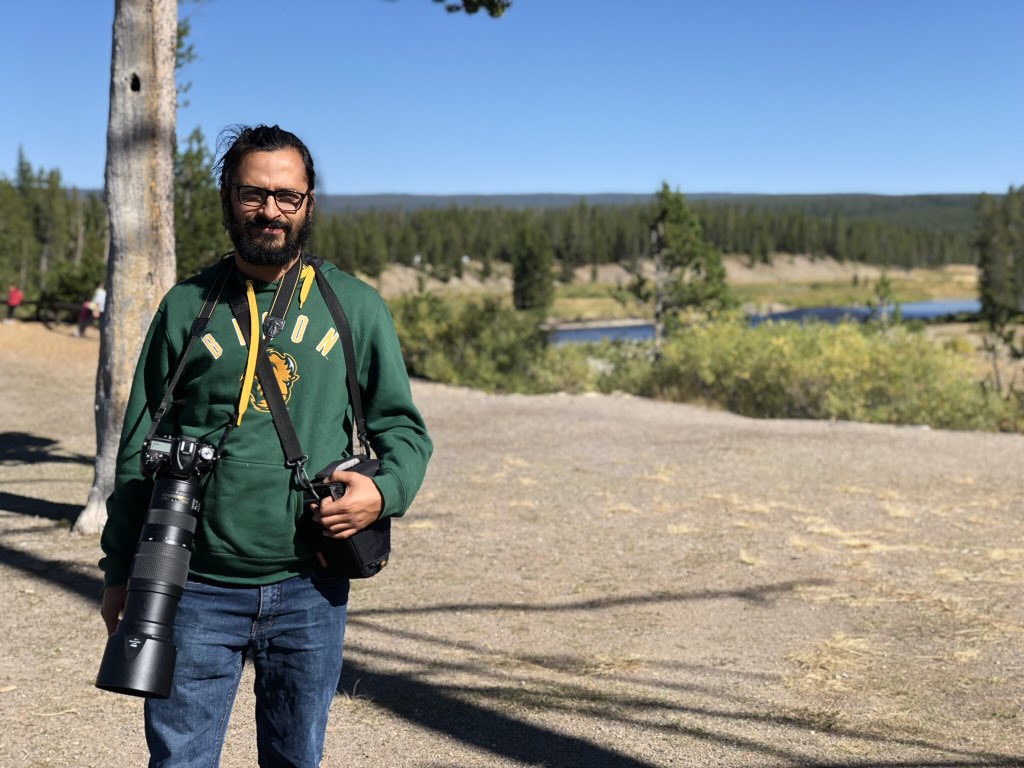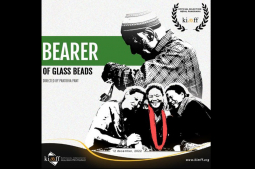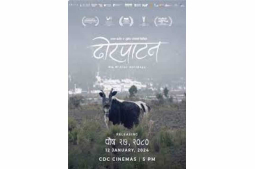Cham: The Dance Meditation (With Video)
5 years ago

5 years ago

5 years ago

5 years ago

5 years ago

5 years ago

Soon after enrolling in Business Administration for a year, Anuj Ghimire realized that banking was not his cup-of-tea. Studying science in high school was the only saving grace that could link him back with the world of zoology. He decided to take the U-turn and follow his early interest of studying species. Further obtaining a master’s in Zoology from Tribhuvan University, he spent three years teaching at Tri-Chandra College before moving to the US in 2017. Ghimire is currently doing his PhD research in Zoology and (Evolutionary Ecology) at North Dakota State University. His current project is ‘Body size variation and telomere dynamics in house sparrow of North America.’
In an interview with My City’s Sonam Lama, Ghimire shared his insights on his research on Zoology and Evolutionary Ecology.
How did you start with studying species?
It all started from my early fascination for travelling and observing how nature actually worked. The journey of my research initiated at an individual level. I previously researched mammal species including monkeys and dolphins. However, at one of my visits to Manang, I came across many species of spiders on the way uphill. As I climbed higher, I was amused to find the body size of the species maximizing. The further research led me to Carl Bergmann's rule which is an ecological rule that states that populations and species of larger size are found in colder environments, and species of smaller size are found in warmer regions. It meant that body size of any most warm-blooded animals are bigger in cold areas while smaller in the warmer regions. This finding grew me curious enough to conduct further study on birds.
What downsides of scientific research do you observe here?
Lack of funding in ecological research is one of the primary hurdles that lags researcher behind. The study of science is to unravel the unknown. It may take generations to make discoveries or challenge the existing theories and principles. However, the outcome could yield no good results should the study be evaluated by personal or financial benefits. The other branches of science such as physics and chemistry or some aspect of biology may lend a close ground to generating economy whereas zoology by itself is quite the opposite. It is much into research and findings. Therefore, when the sphere of study seems encroached, there is no other option for a researcher than to take a flight to a feasible environment. The definition of science is much commercialized and politicized here which mars the essence and value of any scientific research.
As Nepal’s topography homes diverse species of butterflies and birds along with many other endangered species, how do you find the importance of rigorous research in the country?
Nepal has an amazing geographical variation which means it has a suitable environment for huge number of diverse species. However, the only way to observe and analyze the ecology of species is through study and research. If not a rigorous and frequent updates on different studies, we may conduct mini researches. The government is quite rigid regarding its conservation policy that it bars researchers from conducting research on animals that requires animal handling. It is completely protected which is a better approach for the welfare of species. However, the fact that further study and research could unravel better possibilities is unacknowledged.

What does your study on home sparrows focus on?
My study especially focuses on finding the causing factor behind the Bergmann’s rule. As stated by the rule, the body sizes of species evolving in cold environment are comparatively larger to that of evolving in warmer regions. This further implies that species surviving in colder regions should grow faster and their breeding season lasting for a shorter span of time. In order to survive, the species deal with the cost of fitness by adapting to grow faster. In other words, the ‘fitness cost’ of an organism is its ability to reproduce and survive in a competitive environment. On the process of growing in a faster pace, there are factors that affect them in many different ways. My study is focused on finding the changes that their bodies go through during the evolving period.
Our chromosome has a repetitive nucleotide sequence at its end which protects its deterioration and fusion with another chromosome. 'Telomeres' are repetitive sequences at the end of our DNA that protect our chromosomes. We can also understand that the telomeres get shorter as the body grows rapidly or as we age. On this note, the rapid growth of species in cold environment results to the shortening of their telomeres unlike those surviving in warmer regions. The species deal with oxidative stress in the process of evolving faster. Thus, I am studying how ‘oxidative stress’ affects the length of telomeres in house sparrows in relation to body size.
In your view, how can we make a feasible environment and scope in the country for competent youths?
The first thing that needs to be done is create a good environment to conduct ecological research, which starts with funding. Governmental and non-governmental agencies should focus on funding young scientists to work on Ecological research, which should be backed up with physical resources as well. Even if someone ends up getting funded, there are not enough labs here to be able to do the things the students might want to do. So, spending on funding and resources would be the first place to start. Secondly, promoting pure science and different realms of science is the way to go. There’s a concept among students that studying Bsc. means that youre going to have to become a teacher. The nation should create an environment where young scientists can earn their living by becoming a scientist and that a Bsc. degree wont just limit you as a teacher.


- by RAKHI BIND

- by Republica

- by Bishakha Koirala

- by Divya Adhikari
Leave A Comment